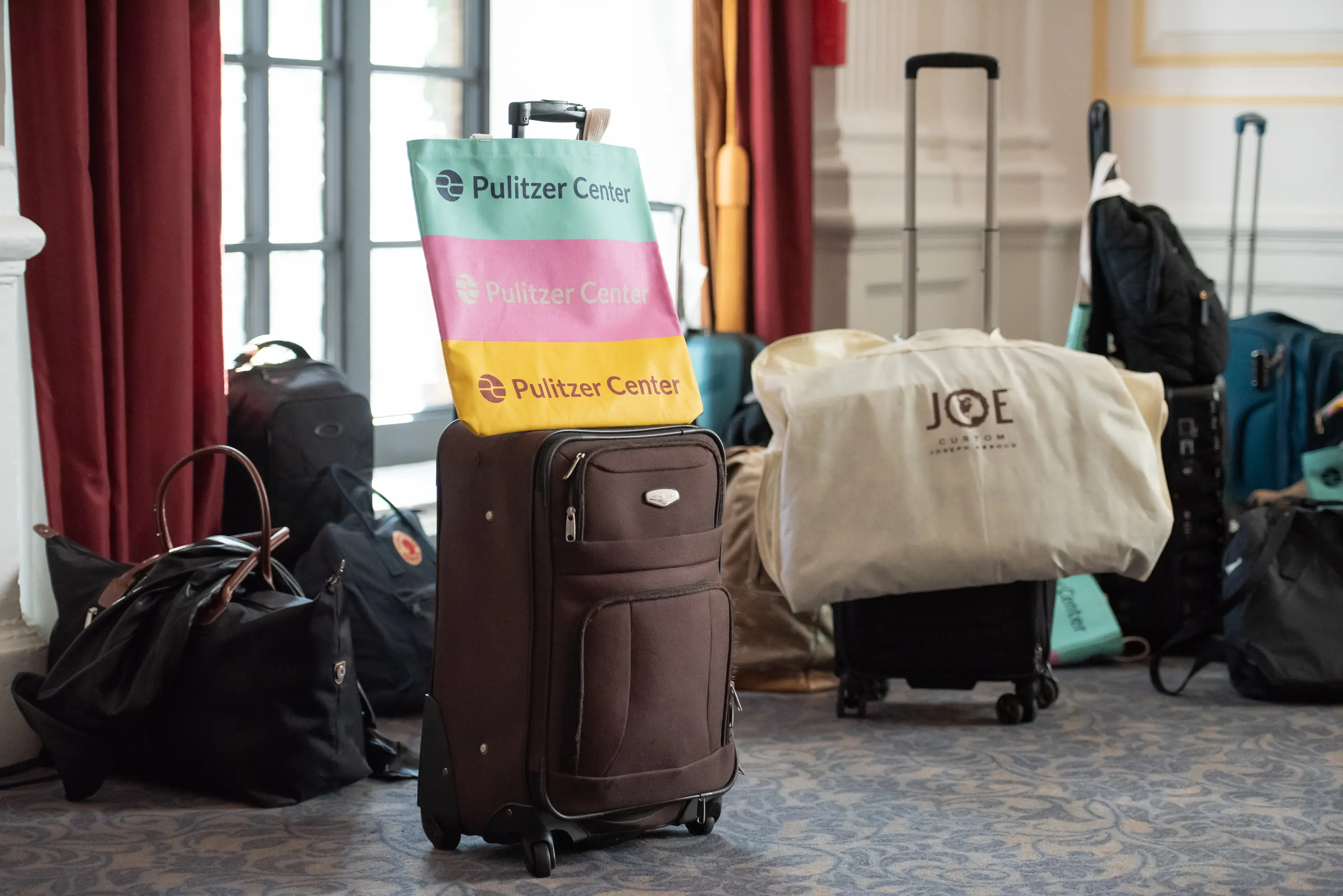
On the first day of Washington Weekend 2022, Reporting Fellow Program Director Kem Sawyer introduced the Pulitzer Center staff at the Omni Shoreham hotel venue and welcomed the Reporting Fellows to the first in-person Washington Weekend event since 2019.
Global Health
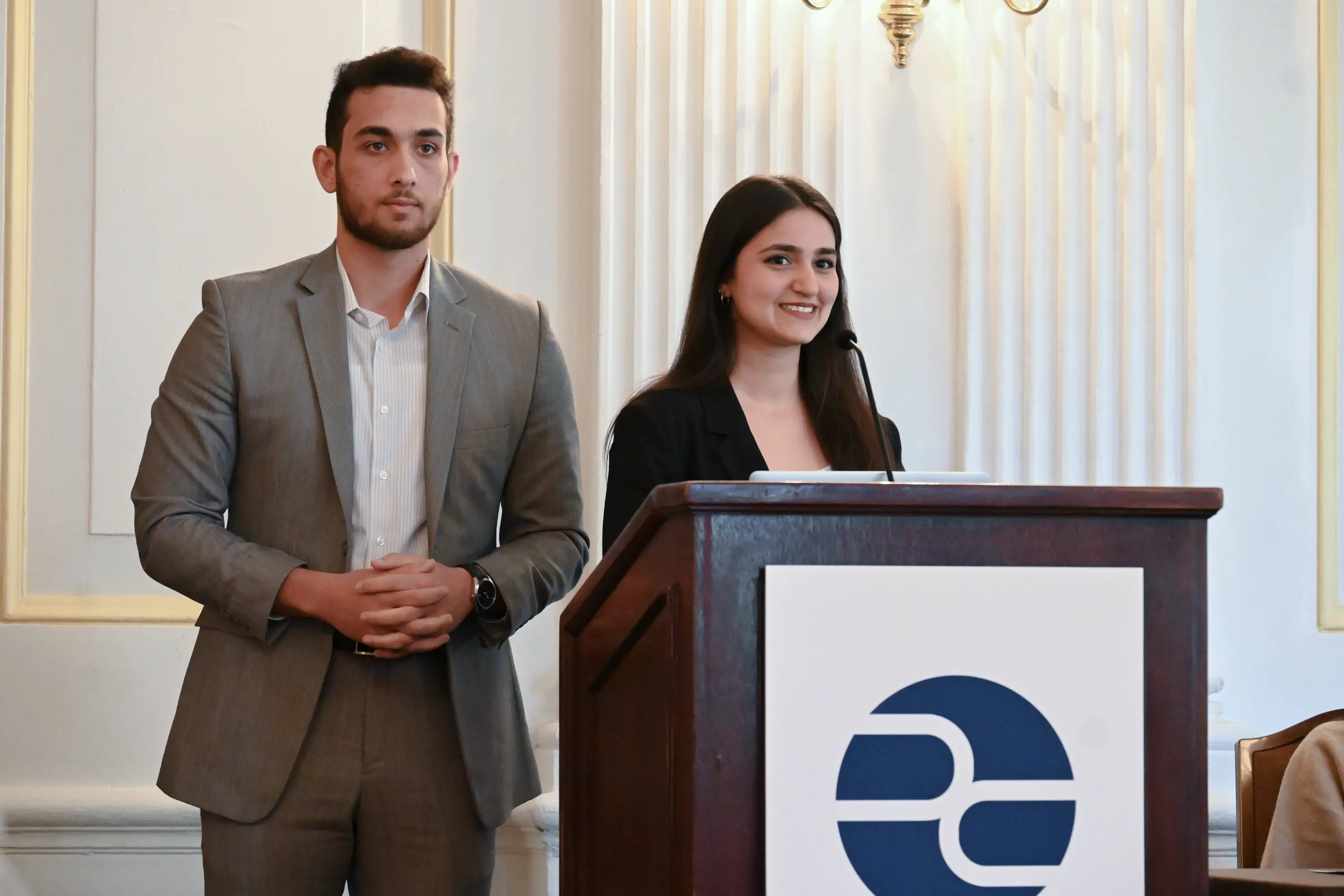
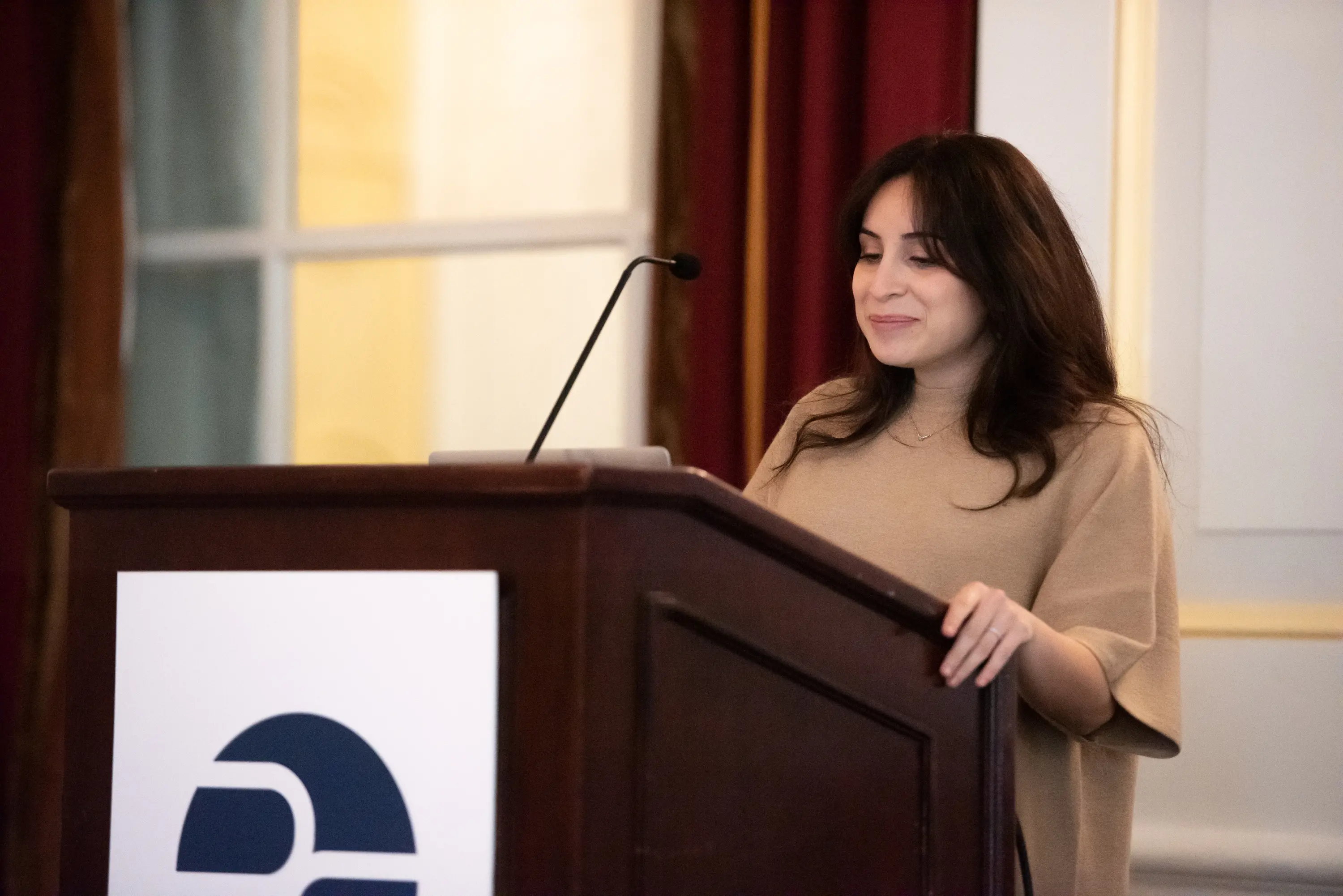
Diana Rayes (Johns Hopkins Bloomberg School of Public Health) started off the weekend of presentations discussing the mental health impacts of displacement on Ukrainian refugees. Rayes traveled to Turkey, the largest host of refugees in the world, to report on the changing tensions as the war continues. “It was quite disheartening to talk to [the refugees] about their mental health needs, which are largely unmet,” Rayes said. “They don’t have access to health insurance as tourists in Turkey, and they are not sure if they will apply for refugee status given they just want to go home.”
Wasay Mir and Laiba Mubsahar (Northwestern University in Qatar) shared three women's “quests to live an ordinary life in extraordinary circumstances,” telling the stories of survivors of acid attacks in Pakistan. They discussed the challenges and considerations of safely and accurately telling these stories without exploiting their trauma.
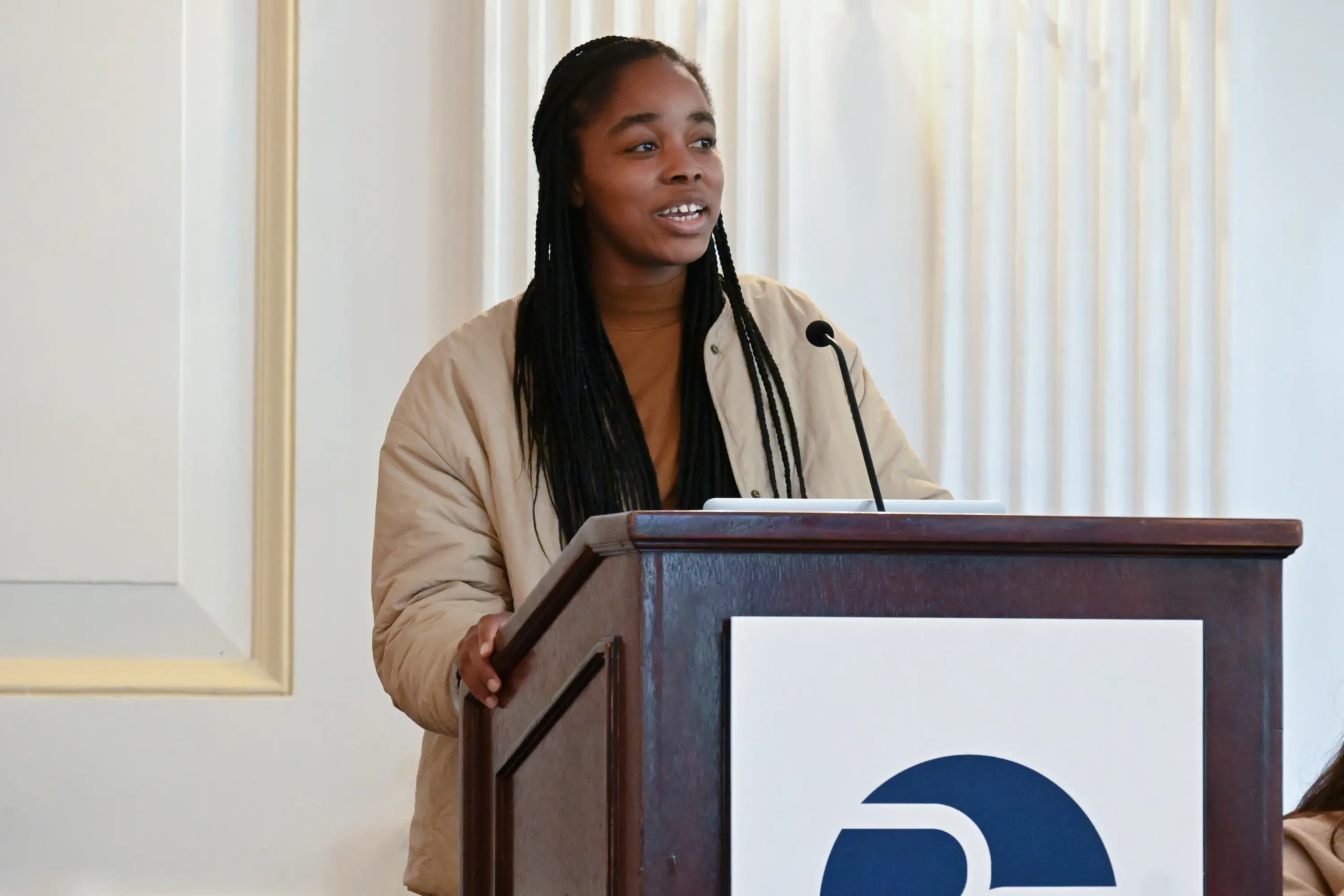
Paola Koki Ndombo (The George Washington University Milken Institute School of Public Health) traveled to Cameroon to investigate vaccine resistance and prevention efforts in a country where 1,000 women die annually of cervical cancer. Ndombo spoke to the importance of grounding public health communications in local cultural, social, and religious contexts.
Madeline Hart (Georgetown University Berkley Center for Religion, Peace, and World Affairs) continued the conversation on religion’s influence on public health efforts with her presentation on why the anti-female genital cutting (FGC) movement in Guinea failed. “That was the crux of the failure in Guinea… the religious groups exclusively focused on health concerns,” Hart said, emphasizing the need for culturally grounded health communication efforts.
Why did efforts to prevent female genital cutting fail in Guinea? Madeline Hart of @Georgetown explores the role played by religion in this practice, sharing the stories of two women, and how they are championing the efforts against this practice. #PulitzerWeekend22 pic.twitter.com/OCgqKFw4KS
— Pranab Chatterjee (@scepticemia) October 14, 2022
The panel concluded with Dylan Ortiz (Westchester Community College), who created a documentary about the food insecurity crisis in New Orleans. Ortiz shared the physical and mental tolls on parents and their children struggling with food insecurity and explored the work of two nonprofits focusing on a “no-barrier” approach to food distribution.
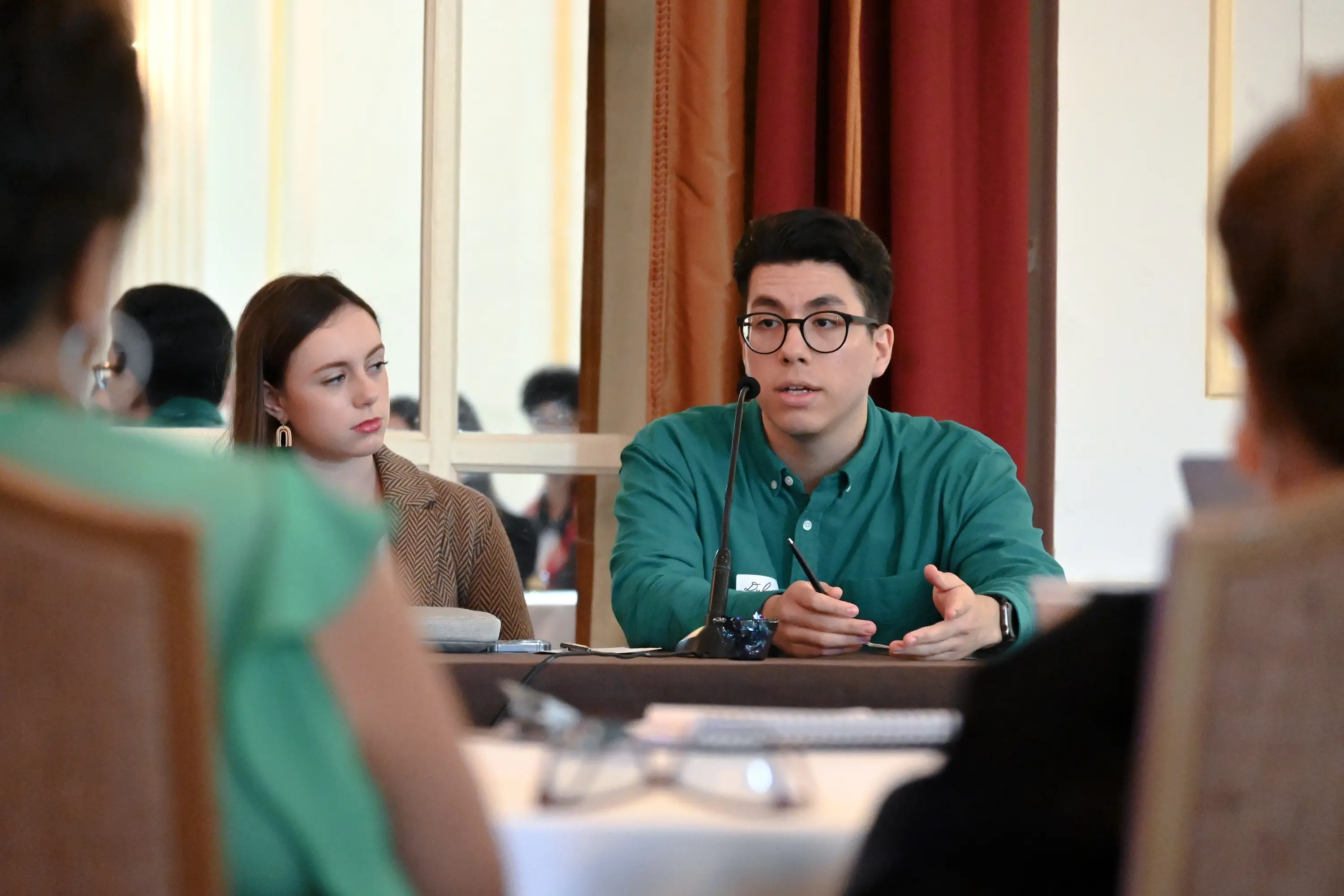
Climate and the Environment
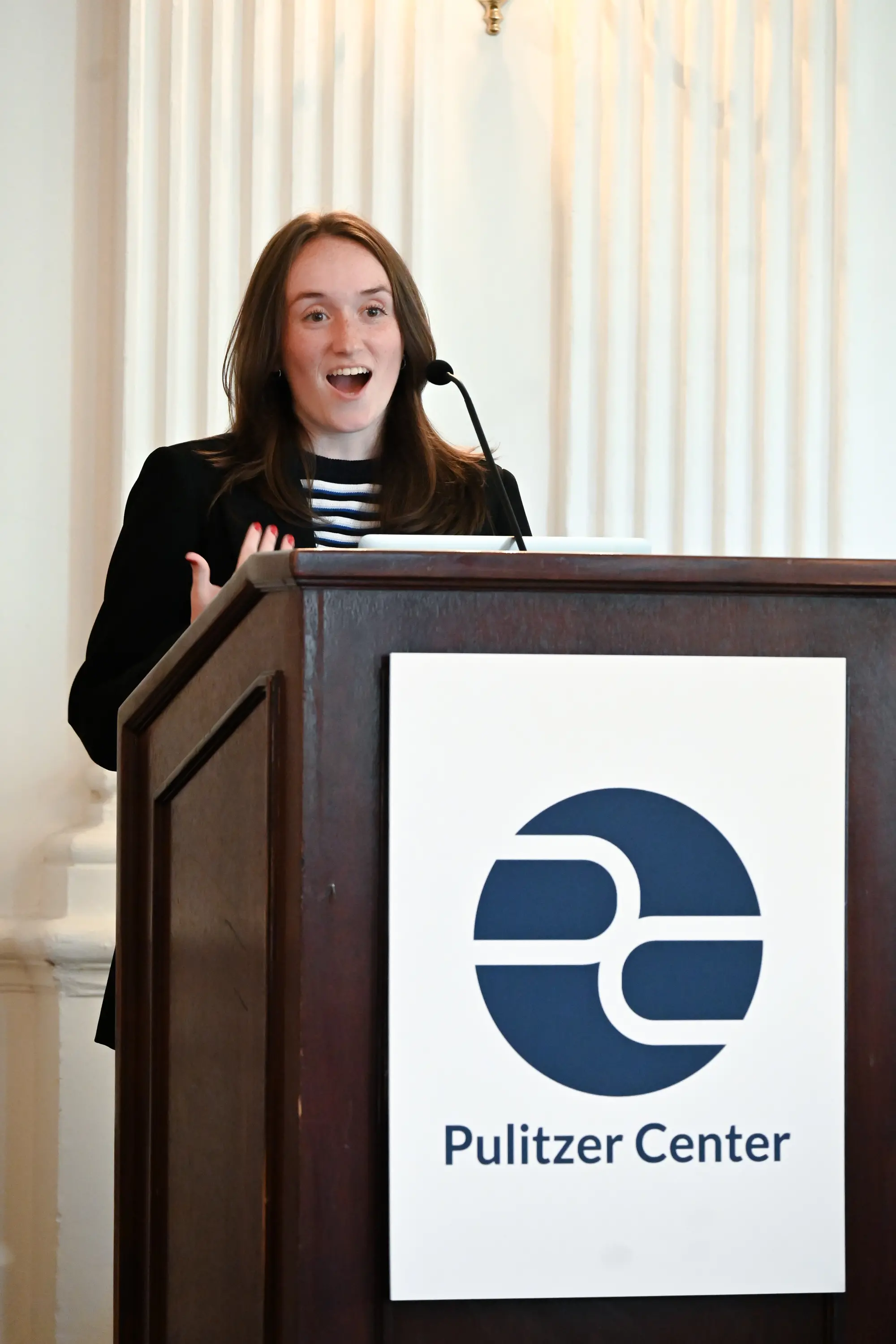
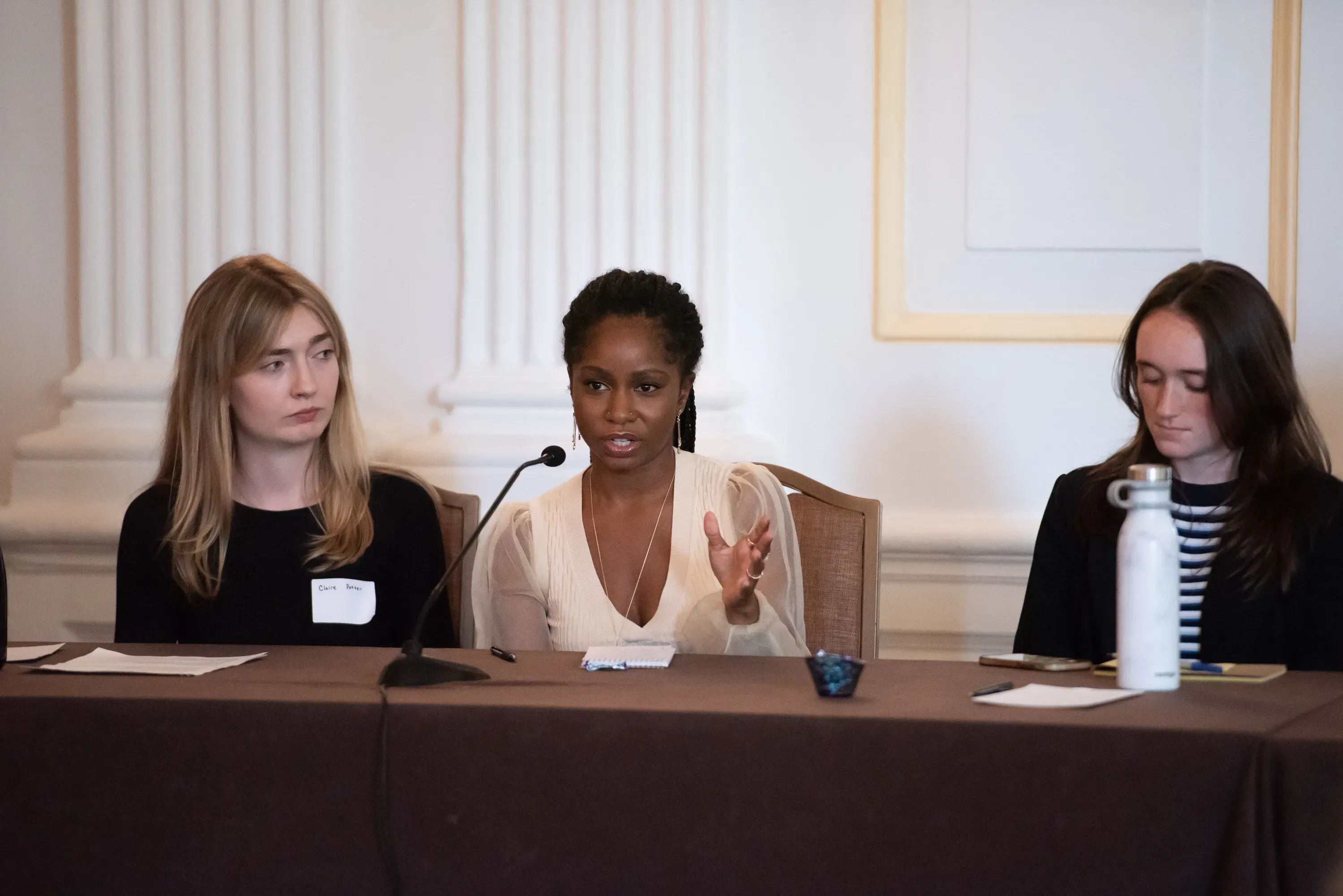
Claire Potter (University of Chicago) reported on the limited access to running water in Mexico City that can be traced back to the nation’s history of Spanish colonialism. “Water doesn’t obey political boundaries,” she said. Potter found that today, 30 percent of the city’s water is pumped into the city from distant water basins—a highly expensive and energy-intensive process that often leaves Mexico City residents without reliable access to running water.
Sydney Shuler (Hampton University) also spoke about the water crisis, this time in Chennai, India, where in June 2019 the city ran out of water to supply the city’s 11.2 million residents. Shuler covered a variety of community-based and institutional solutions to this issue, which is disproportionately impacting Chennai’s lower-income residents.
Niamh McAuliffe (Hunter College) discussed her findings from the weeks she spent traveling in Ireland studying anaerobic digestion plants that create biogas, an alternative renewable energy source. McAuliffe reported on several anaerobic digestion plants in Ireland that are seeking to harness the biogas produced by breweries instead of letting it go to waste. “Even though this is new, exciting, and a new option, it will not be the silver bullet to solve the energy crisis. It will help offset the dependence on fossil fuels, but it will not cut it off completely,” McAuliffe said.
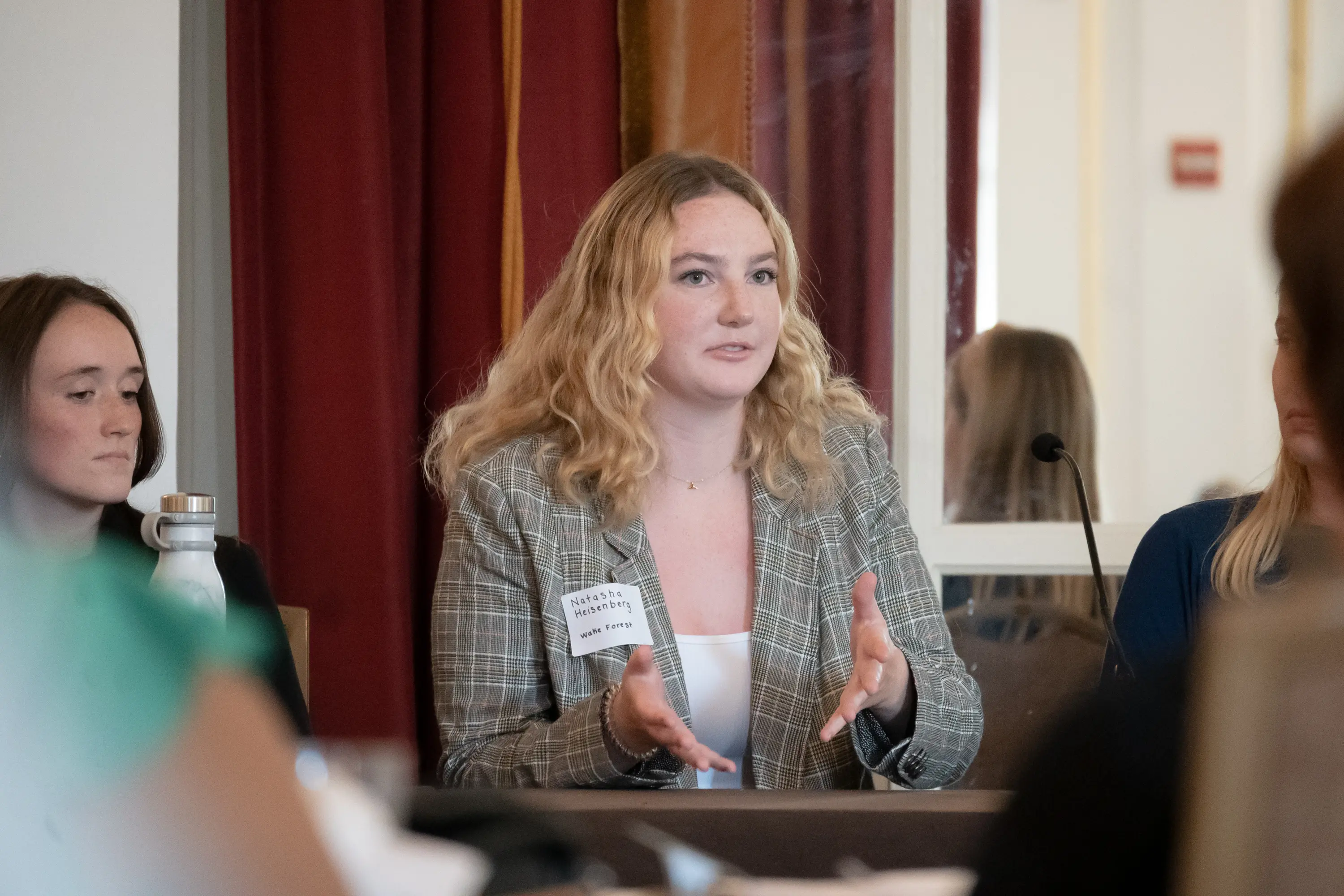
Natasha Heisenberg (Wake Forest University) reported on the grindadráp, the Faroese practice of whaling each year, which is both a cultural practice and a source of food for the island’s residents. Heisenberg found that while environmental activists have criticized the practice for being cruel and unnecessary, residents of the island have argued that it is a sustainable way for them to get their food through local sources instead of having food and supplies imported from other countries. She is working to fill the gap in news coverage on the cultural significance of this practice with her reporting.
Danielle Filjon (Flagler College) will take a look at purse-seine fishing practices in South Africa, which has been criticized for being harmful for local biodiversity. Her reporting explores how the proposed bans on purse-seine fishing could also be detrimental to the marginalized community that typically utilizes this practice.
Grace Cajski (Yale Program on Climate Change Communication) virtually discussed her project, Hawaiian Fishpond Aquaculture in a Warming World, looking at the ancient practice of aquaculture in Hawaii and how it has proven to be a highly effective method of fishing sustainably. It’s “truly science, and it’s truly an art,” she said in a pre-recorded video for the conference. Cajski noted that in the face of a warming planet and global climate change, invasive species are more at risk of invading essential fishponds, potentially harming an essential source of food for many native Hawaiians.
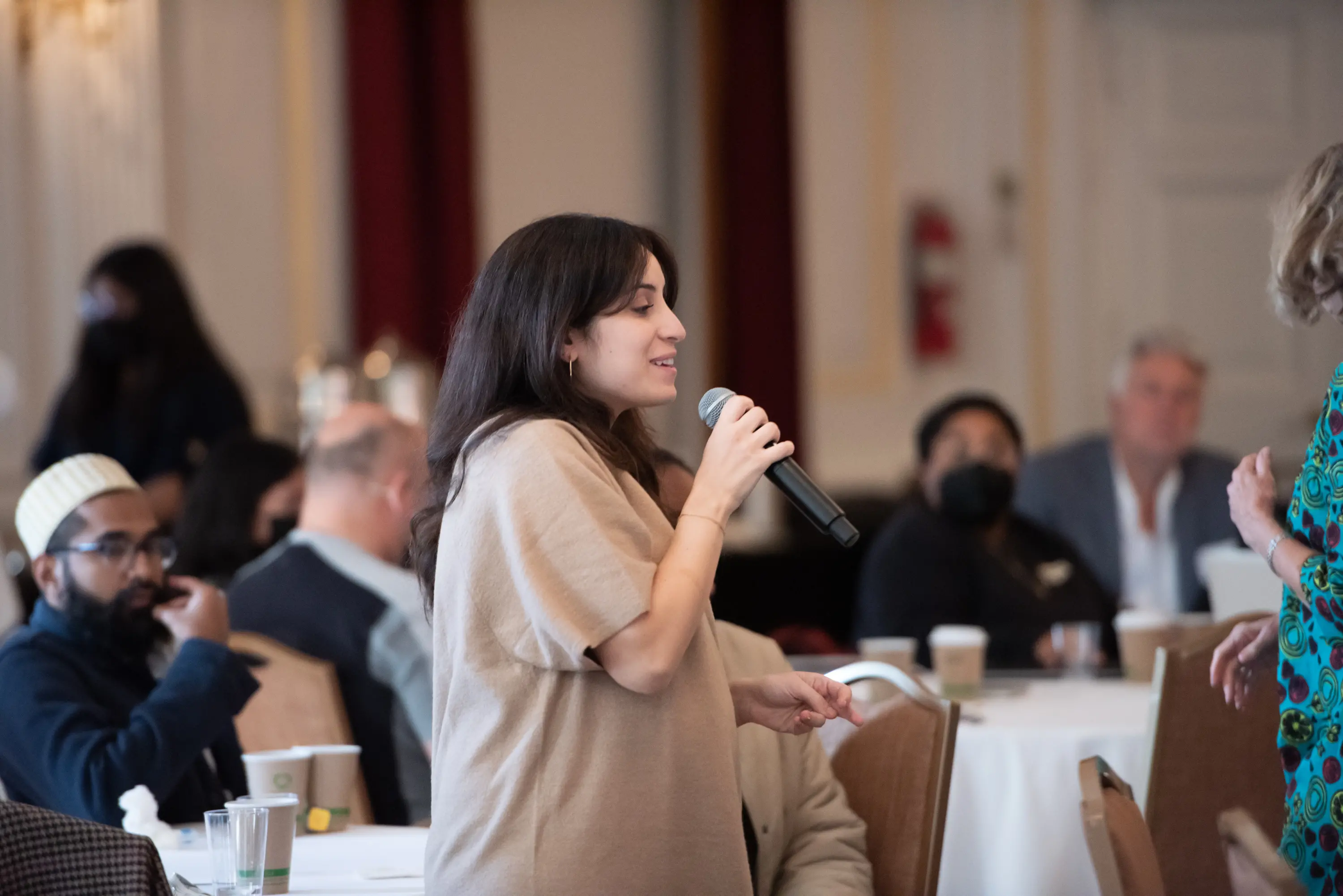
Climate & Environment panel w/ @pulitzercenter Reporting Fellows #pulitzerweekend22 discussing living without water. pic.twitter.com/5ixL7hjMuO
— Kem Sawyer (@kemsawyer) October 14, 2022
Labor and Gender Rights
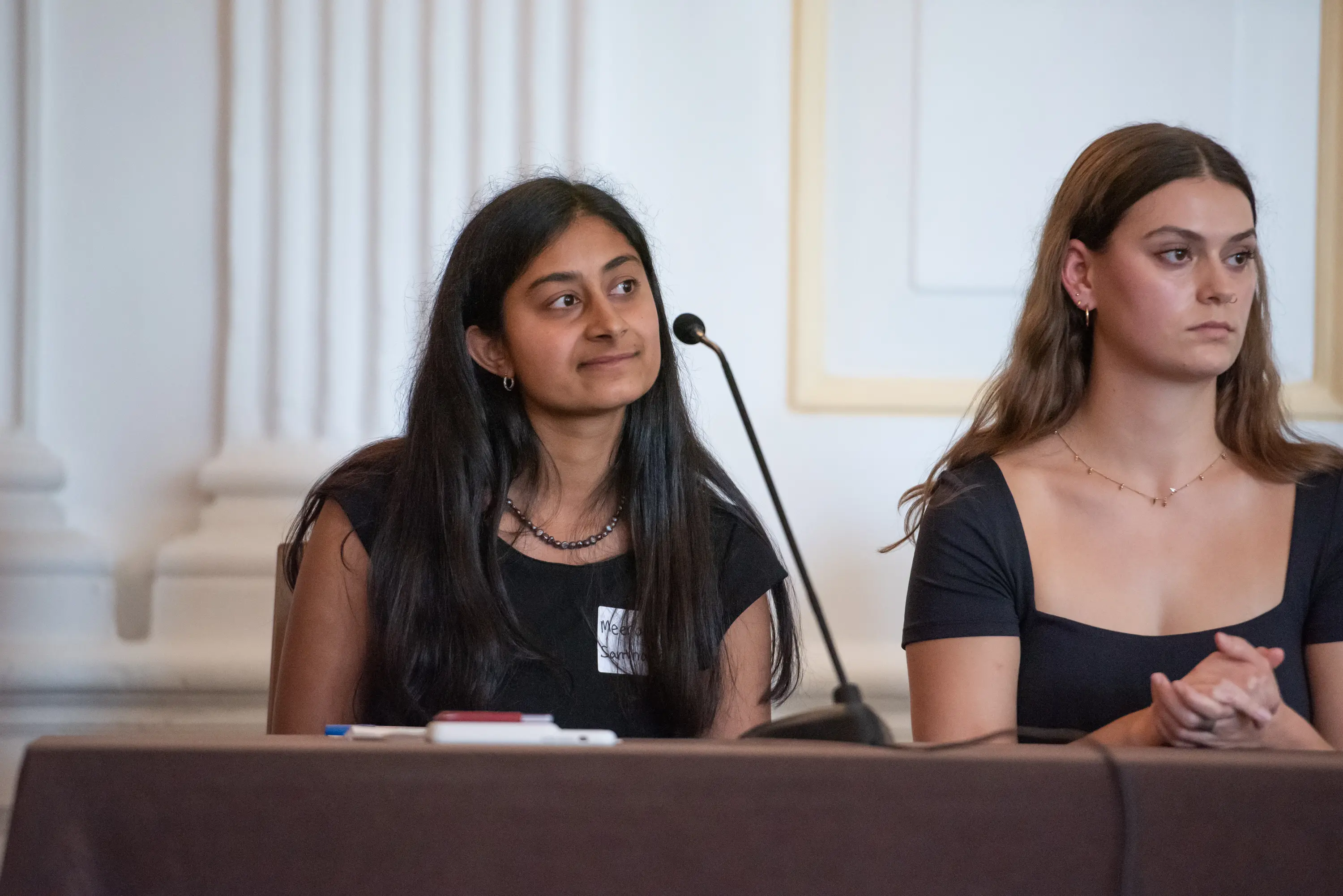
Meera Santhanam (Gender Fellow, University of Chicago) started off the panel with her project, The Feminist Filmmakers Revolutionizing Lebanese Cinema. She reported from Beirut, Lebanon, where women are leading the film industry, in sharp contrast with the U.S. The women filmmakers she interviewed are challenging common perceptions of women in the Middle East through new narratives of the environmental crisis, the financial crisis, mental health, and COVID-19. “You can’t talk about film in Lebanon without talking about crisis today, but at the same time, Lebanon is a place of hope,” Santhanam said.
Elisa Agosto (Guttman Community College) presented her reporting on the rights of migrant Latina women in New York’s cleaning industry. Migrant women workers have been standing outside at la parada in New York for years waiting for work with no change in labor conditions, Agosto said. Activist organizations have the potential to “bring pride and dignity to the work that these women are doing,” Agosto said, helping women know their labor rights, learn work safety and basic English, and adapt to a new life for themselves and their families.
Amazed by @pulitzercenter fellow Meera Santhanam’s work in Lebanon on feminist filmmakers revolutionizing cinema. Her piece for @MiddleEastEye: Lebanon: Drama therapist helps inmates with mental illnesses while pushing for reform https://t.co/9UWZUadFxw
— Diana Rayes - ديانا (@Diana_Rayes) October 14, 2022
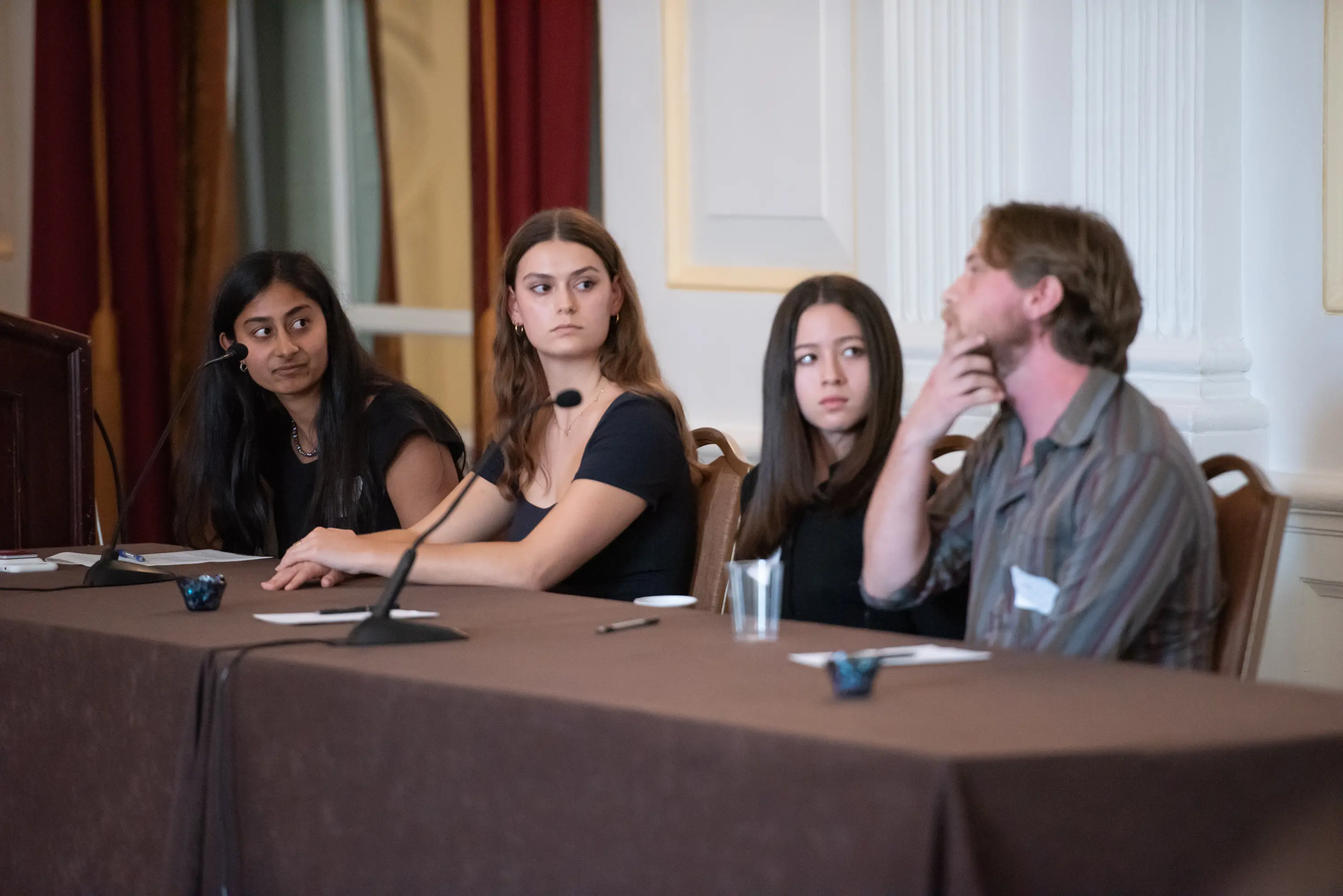
“Raise your hand if you think public transportation is designed for women,” began Laura Goodfield (Gender Fellow, The George Washington University). She explained that although women are the primary users of public transportation, urban design that fails to address safety concerns, harassment, and accessibility issues limits women's mobility within cities. Her reporting explores possible solutions in Berlin, including the Berlin Autofrei referendum, which seeks to ban private car use and make public transit and pedestrian zones the primary mode of transport. “The process to make Berlin more livable for all requires citizens and lawmakers alike,” Goodfield said.
Cole McCann-Phillips (Gender Fellow, University of Pennsylvania) reported on Lebanese women trapped in abusive work environments after the economic collapse in Beirut while waiting for repatriation to their home countries. The kafala system, McCann-Phillips explained, is a form of contract slavery that allows employers to exploit the workers they bring into their homes. The biggest lesson for McCann Phillips was “Life goes on,” he said. Domestic workers are now practicing resistance and solidarity by protesting outside of embassies and helping each other find shelter, despite a day-to-day life of uncertainty and fear.
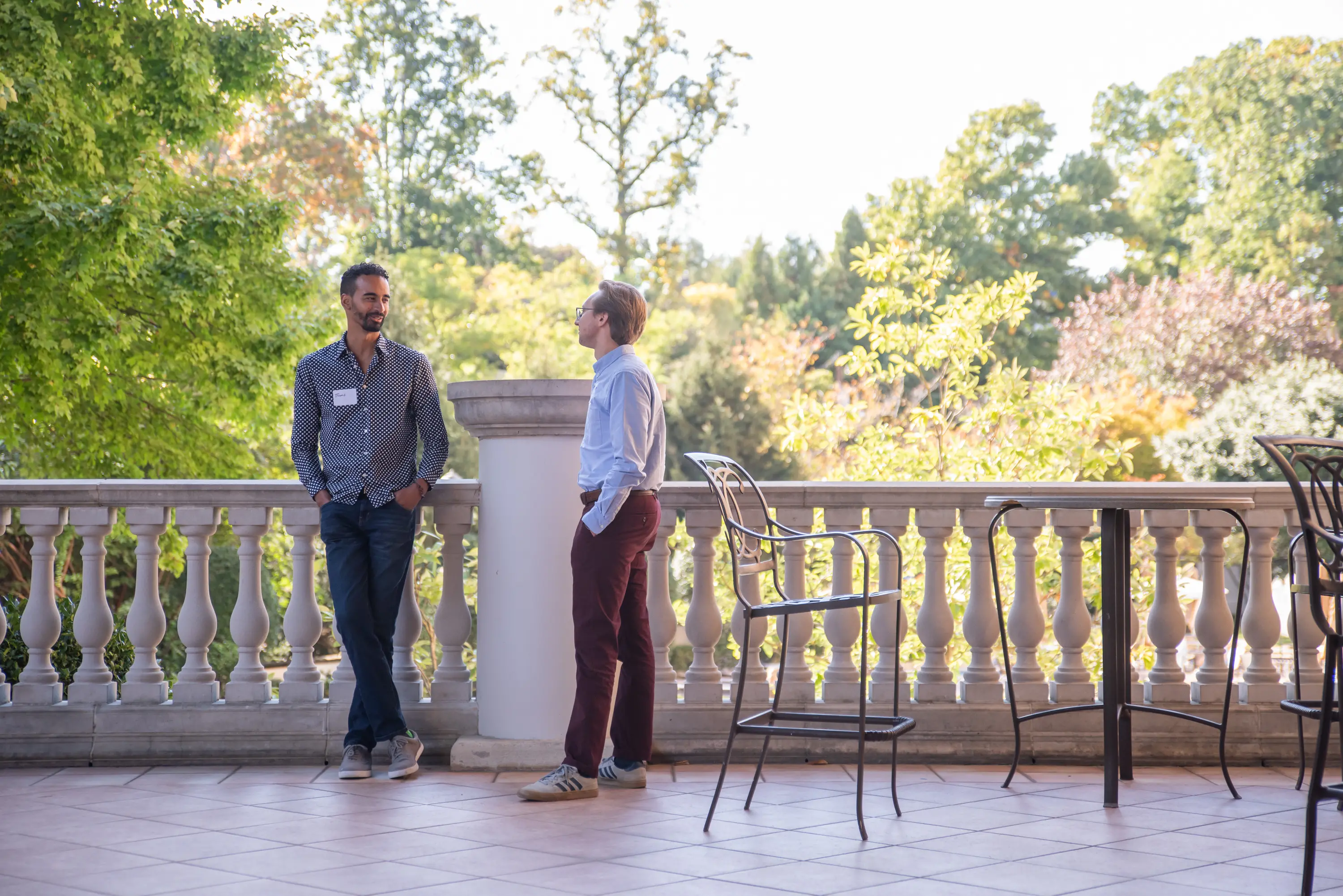
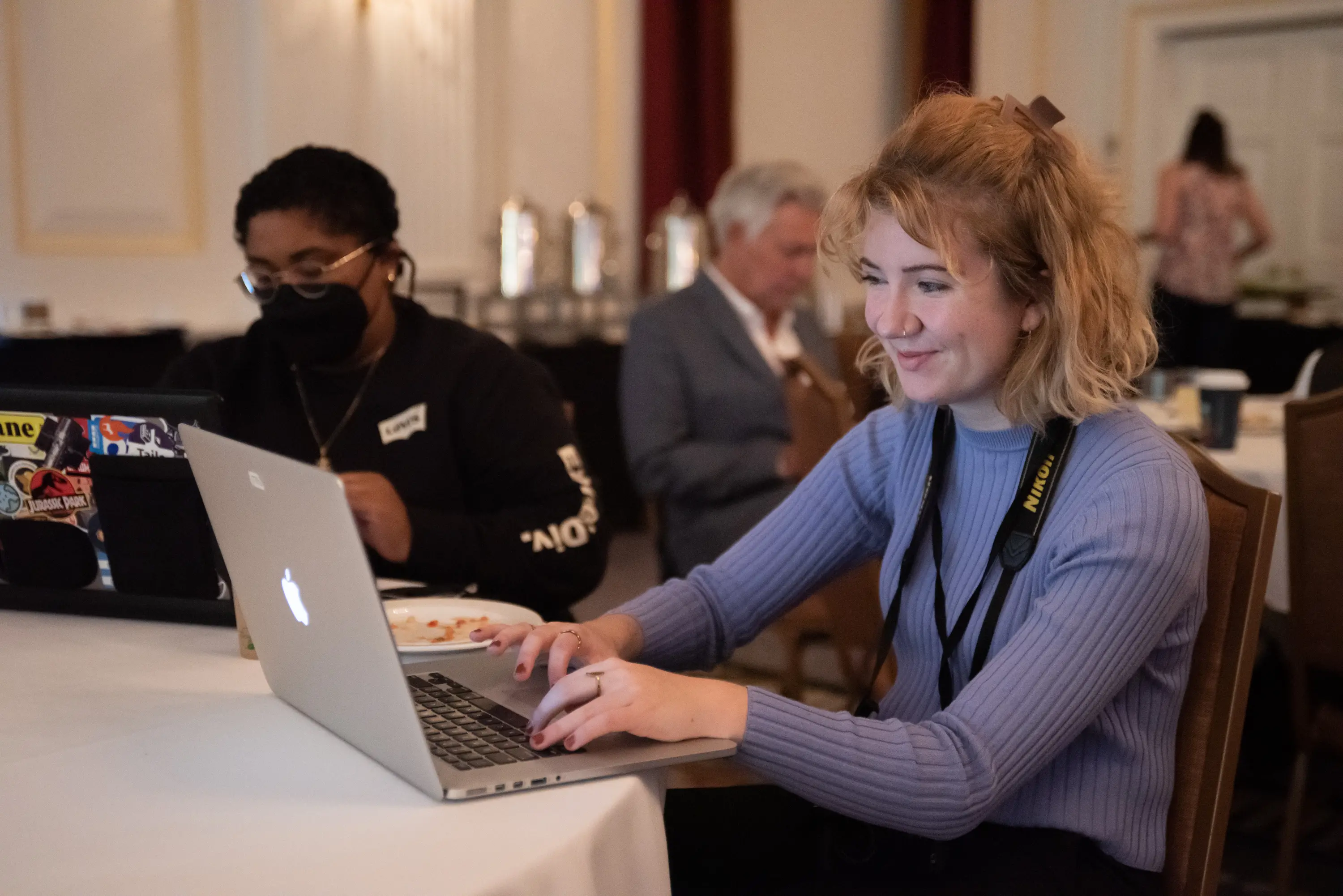
Panel Recordings
RELATED CONTENT
Support our work
Your support ensures great journalism and education on underreported and systemic global issues




